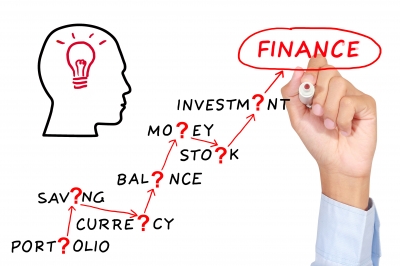Are Investing and Gambling Important?
A clear understanding of what investing and gambling , is essential for good financial management. These two (2) words, often heard, yet usually taken for granted, have deeper implications to every individual’s economic resources more than one can ever imagine, since, like any type of reserve, finances can become depleted if not spent wisely. So the questions “What is investing and gambling?” and “What are you currently engaging in and doing with your money?” are good queries to ponder on at this point.
What is Investing and Gambling?
Investing can be defined as activity wherein a person carefully and systematically engages in to gain profit from what he/she has spent his/her financial resources on. Such an activity is usually long-term, wherein an individual (called an investor) has a certain level of control over (e.g. means to purchase, proof of ownership, etc.) what is being waged. Gambling, on the other hand, can be defined as an action wherein a person (called a gambler) wages his/her finances on something and/or someone with the hopes of acquiring an amount greater than what has been originally waged, but leaving every aspect of the activity to chance or luck.
Compared to investing, however, gambling is either a short-term or series of short-term events, wherein the gambler may or may even have no control over (e.g. means to purchase, proof of ownership, etc.)what he/she has been staked. However, these definitions of investing and gambling might be too simplistic for others since there are cases wherein investing might resemble gambling and vice versa. Nonetheless, good financial management requires such a clear understanding regarding this matter.
Investing and Gambling Differ in Their Objectives
A way to differentiate between the two can be done by looking into one’s objectives in engaging in an activity. Investing is usually done for commerce, and is usually classified as business. It includes putting one’s stake on stocks, shares, real estate, among others, in order to gain profit, from them, while avoiding the highest percentage of risk. This is done through a cautious and scientific approach of waging ones funds on something. Though gambling, is also done to profit from what he/she has staked his/her finances on, the objective for engaging in such activities is usually for entertainment and/or compulsion only, and is fuelled by fear and/or greed.
Gambling Can Become an Addiction
Another distinction that can be made between investing and gambling can be based on their outlook on risk. While investing has a “risk-aversive” stance, gambling is characterized to be “risk-seeking,” which is inconsistent with the pursuit of sound financial management. And this outlook on risk has a negative side effect – gambling addiction.
Hundreds of books have been written to encourage investing. Though books on gambling are also available in the bookstores, most are about discouraging it and/or teaching methods on how to cope with one’s addiction to it. Gambling recovery support groups have also been formed to help gambling addicts to help cope with and hopefully overcome their obsession.
Where to Invest and/or Gamble
People invest in stocks, real estates, precious metals (e.g. gold), bonds, etc., which, as recognized by economists, are forms of businesses in themselves. Gambling is usually held in casinos where individuals play table and/or electronic games. These also can be done outside of it. Examples of non-casino gambling include card games, carnival games, coin-tossing games, confidence tricks, and dice-based games. Other popular forms of gambling are pari-mutuel betting, sports betting, etc.
A clear definition for both investing and gambling is indeed essential for good financial management. Distinguishing one from the other is important to help a person become mindful of what he/she is currently doing with his/her money since, if further scrutinized, a thin dividing line and gray areas exist between the two. It is wise to consider all of these matters as one plans for his/her financial future, taking note of the possible consequences linked to the decisions he/she will be making as he/she pursues them.
Photo Attribution:
Featured and 1st image by Pakorn / freedigitalphotos.net
2nd image by Mister GC / freedigitalphotos.net
3rd image by Stuart Miles / freedigitalphotos.net



